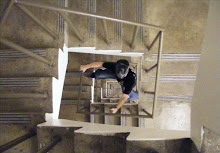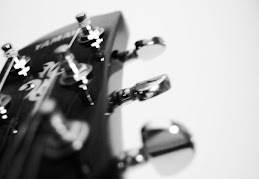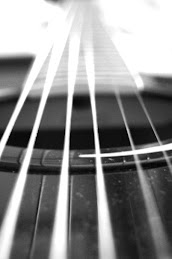The news of the day as it reaches the newspaper office is an incredible medley of fact, propaganda, rumor, suspicion, clues, hopes, and fears, and the task of selecting and ordering that news is one of the truly sacred and priestly offices in a democracy.
-Walter LippmannI believe this to be an optimistic view of journalism. It sets up the media as this holy institution, beyond corruption or influence, standing untouched in the brutal world of politics and censorship. But the media is not beyond the reach of these things. Yes, the media does sort through fact and propaganda and rumor, but rather than just reporting facts as they are, it places the propaganda and rumor right alongside the facts, sometimes because of who backs the newspapers, sometimes just to sell. The paparazzi takes the wildest rumors available that have evidence enough to convince the lowest common denominator and puts them right on the covers of their magazines. Even newspapers and news programs become culprits when they allow political agendas to frames the stories reported, or when they permit a political force to assign them propaganda to spout to the people.
However, though his view was somewhat optimistic, Walt Lippmann tries to get to the heart of what journalism should be, despite what it might be today. At it's core, the press and media is meant to be a tool of the people. It allows the people to find facts that they otherwise wouldn't learn, and the people can usually sift through the fiction of propaganda and rumor and derive the truth from the facts given. Usually.
The media is meant to provide the people with a verbal check to the government, allowing them to expose dishonest politicians and the plethora of scandals the may hinder the democracy we've created. The press is the people's voice.
In that way, Lippmann had it right. The press is an essential tool to the running of a successful democracy. The press is the very symbol of freedom. As long as the press exists, the facts can be spread to any number of people, allowing them to make educated and informed choices when it comes to their government. But like the allegorical church Lippmann refers to, the press is corrupted from what it should be. People abuse the freedom that it represents, using it to spread gossip and invade the privacy of people's lives.
That is not to say that there is no good press. There are many journalists who work hard to bring not only objective truth to the people, but objective truth with context. This last part is important. Without the context for the facts, some people might not know what conclusions they should draw from the truths given to them, and wouldn't know to make the decision best for themselves. They should be told what choice to make, but they need to be shown the overall context for their decisions. It is here that some media take advantage, distorting the context in order to influence decisions, but many journalists just do enough to allow a person to make the best decision for himself.
"...and were it left to me to decide whether we should have a government without newspapers or newspapers without a government, I should not hesitate a moment to prefer the latter." -Thomas Jefferson








Well put. Good framing, good support and good voice (though more personality might be appropriate, but we'll talk about that next week).
ReplyDeleteOn thought: when Lippmann wrote his passage (and Jefferson his) newspapers were not owned by large media corporations, nor had those corporations been granted the right of citizenship. Does perhaps at least explain some of the difference you notice between the ideal and the reality? Or do you think the journalism of yesteryear is roughly equivalent to today's journalism? Food for thought.
You did have two typos, so make sure you edit yourself as you go.
Good first post.
I do not disagree that Lippmann's statement is an optimistic view of journalism, but from your post, I can't tell whether you agree or disagree with him. There are a lot of statements and external views, but you didn't write much about how the quote made you feel. A person's opinion is the most important aspect of a blog in my eyes and I feel like this component is missing.
ReplyDeleteI strongly agree with your comment about the press being essential for democracy. Even with the shortcomings that you mention, such as the manipulation of context, the press remains a necessary outlet for the people’s voice. I like your description of the press as a tool of democracy, but I also wonder exactly what kind of press we need. Should we continue to support a free press, in which any and all opinions, rumors, facts, and even lies can be published with the hope that the truth will eventually surface? There is a significant gap between your account of the press and your portrayal of what the press should be. Do we need to demand a press that comes closer to the ideal, even if it means regulating what is printed? Good post-it made me think!
ReplyDelete